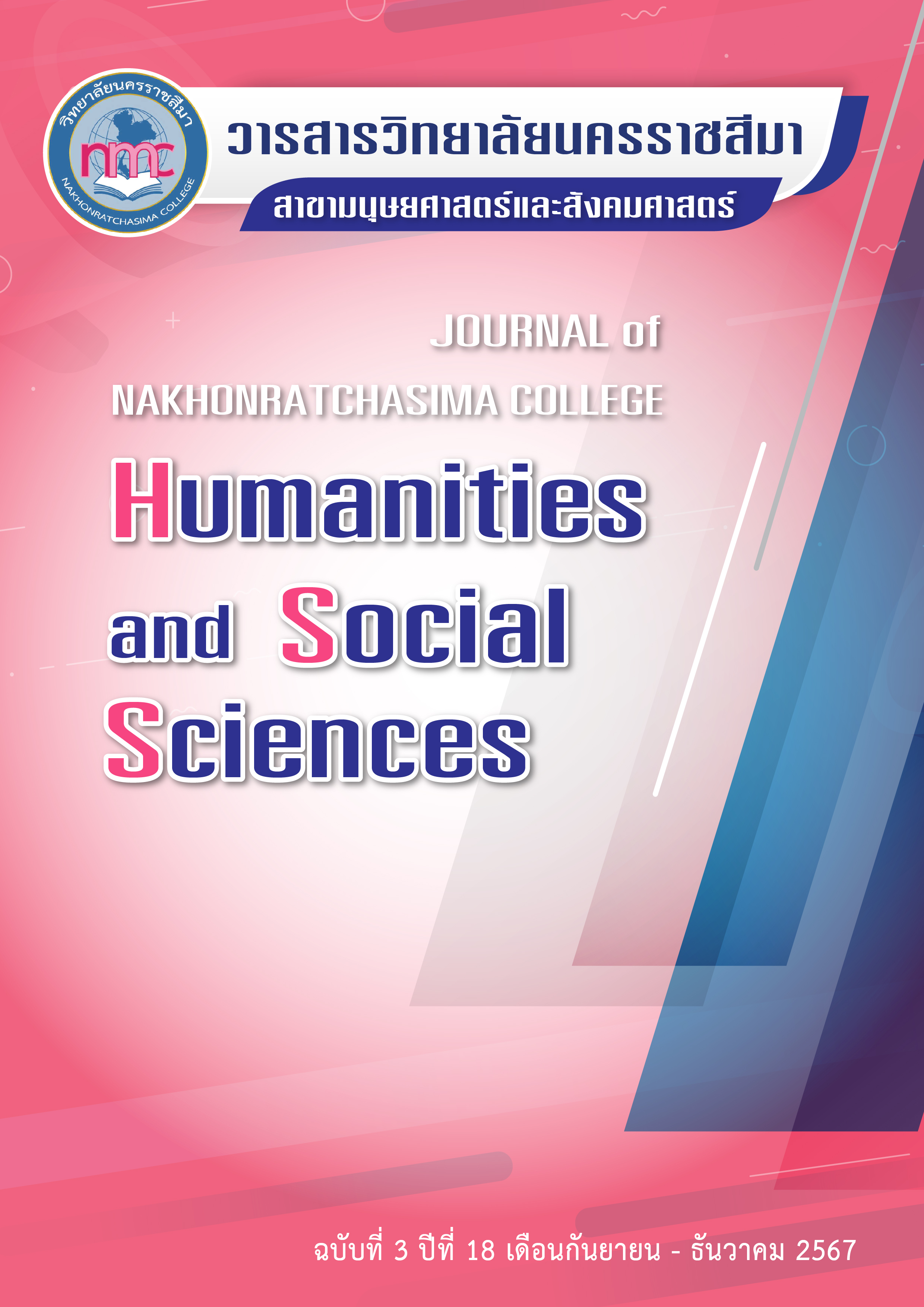FACTORS AFFECTING OF MARKETING ARTIFICAIL INTELLIGENCE USER'S SATISFACTION IN MUEANG DISTRICT, RAYONG POVINCE
Keywords:
Marketing Artificial Intelligence, Marketing Technology, Satisfaction, Organizational ManagementAbstract
The objectives of this research are: 1) To study the general information of organizations and business groups in adopting AI for marketing in Mueang District, Rayong Province. 2) To study the factors affecting employee satisfaction in using AI for marketing. 3) To find management guidelines for implementing AI for marketing in organizations. The tool used is a questionnaire, and data analysis is conducted using quantitative research methods. The population consists of employees and business owners in the area. The sample size is 400 people, selected using Taro Yamane's formula. Data is analyzed using statistical software, employing descriptive statistics and hypothesis testing with t-test (Independent Samples) and F-test (One-way ANOVA).
The study found that:
The approach to adopting AI for marketing in businesses in Mueang District, Rayong Province, should focus on ease of use and up-to-date data management. Understanding customer needs and developing services to meet these needs is crucial. Knowledge sharing among team members should be encouraged, and AI should be implemented in areas where measurable results can be clearly seen, such as customer behavior analysis.
References
สำนักงานพัฒนาธุรกิจการค้า กระทรวงพาณิชย์. (2565). รายงานประจำปี 2565. กรุงเทพฯ: สำนักงานพัฒนาธุรกิจการค้า.
ศิริวรรณ เสรีรัตน์, สมชาย หิรัญกิตติ, & ธนวรรธ ตั้งสินทรัพย์ศิริ. (2551). การจัดการและพฤติกรรมองค์การ (หน้า 20-21). กรุงเทพฯ: ธีระฟิล์มและไซเท็กซ์.
Bhavika, R., Nidhi, R., & Sanjay, S. (2017). Chatbot for university related FAQs. 2017 International Conference on Advances in Computing, Communications and Informatics (ICACCI), 1525-1530. doi:10.1109/ICACCI.2017.8126057.
Fayol, H. (1964). General and Industrial Management (pp. 134-139). London: Pitman Publishing.
Gupta, R., & Katoch, P. (2024). The Role of Artificial Intelligence in Business Management. International Journal of Business Management, 12(2), 45-58.
kankann. (2020). Chatbot คืออะไร? Chatbot มีกี่ประเภท และ มีประโยชน์อย่างไร?. เข้าถึงเมื่อ 20 ตุลาคม 2566. เข้าถึงได้จาก https://tips.thaiware.com/1323.html.
Taro Yamane. (1973). Statistics: an introductory analysis. New York: New York: Harper & Row.
Wilson, K., & Katoch, P. (2024). The Impact of Artificial Intelligence on Digital Marketing Strategies. Journal of Digital Marketing, 15(3), 112-128.
Downloads
Published
How to Cite
Issue
Section
License
จรรยาบรรณผู้เขียนบทความ
ผู้เขียนบทความต้องรับรองว่าบทความนี้ไม่เคยตีพิมพ์ในวารสารใดหรือสิ่งพิมพ์อื่นๆ มาก่อน ต้องไม่คัดลอกผลงานผู้อื่นมาปรับแต่งเป็นบทความของตน และไม่ได้อยู่ระหว่างการเสนอเพื่อพิจารณาตีพิมพ์ อีกทั้งยอมรับหลักเกณฑ์การพิจารณาและการตรวจแก้ไขบทความต้นฉบับโดยกองบรรณาธิการวารสารวิทยาลัยนครราชสีมา สาขามนุษยศาสตร์และสังคมศาสตร์
บทความทุกเรื่องได้รับการตรวจพิจารณาทางวิชาการโดยผู้ทรงคุณวุฒิที่มีประสบการณ์และมีความเชี่ยวชาญตรงตามสาขาของบทความ ซึ่งผู้เขียนต้องแก้ไขตามคำแนะนำของผู้ทรงคุณวุฒิภายในระยะเวลาที่กำหนด หากไม่เป็นไปตามกำหนดกองบรรณาธิการขอสงวนสิทธิ์และยกเลิกการตีพิมพ์โดยจะแจ้งให้ทราบต่อไป
ข้อความที่ปรากฏในบทความของวารสารนี้เป็นความคิดเห็นของผู้เขียนซึ่งไม่เกี่ยวข้องกับวิทยาลัยนครราชสีมาแต่อย่างใด และกองบรรณาธิการขอสงวนสิทธิ์ในการพิจารณาและตรวจประเมินบทความเพื่อตีพิมพ์ในวารสารของวิทยาลัยนครราชสีมา สาขามนุษยศาสตร์และสังคมศาสตร์



